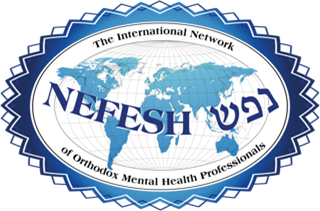Dear colleague,
At this point we assume that you are well acquainted with the recent events
regarding education in New York State. Rabbonim as well as lay leaders have
emphasized that Yeshiva-educated professionals play a large role in
addressing this issue. Towards this end, Rav Yisroel Reisman and Rav Elya
Brudny have personally appealed to us to ask our fellow professional
colleagues to read and formally sign the letter copied below.
We are humbly requesting you to read the letter below and, if you agree to
the content, reply to this email with your name and professional suffix
(e.g., Charles Chaim Neuhoff, PhD).
*It is not necessary to be a resident of NY State to sign this. *
In addition to signing the letter, we encourage you to forward this email
to professional colleagues and acquaintances.
Thank you so much,
Tali Arieff, LCSW
Shmuel Mandelman, PhD
Chaim Neuhoff, PhD
Dear Ms. Coughlin and the Honorable Members of the Board of Regents:
We, the undersigned men and women, are mental health professionals: we
serve as licensed psychologists, psychiatrists, social workers, and mental
health counselors. We are also graduates of yeshiva elementary and high
schools who believe that the skills, insights, values, and knowledge
imparted to us in those schools have served us well in our subsequent
academic and professional careers.
On the basis of our personal and professional experience, we consider the
current proposals by the New York State Education Department to restructure
and closely regulate yeshiva education ill-advised. These efforts, while
perhaps well-intentioned, are in fact based on a defamatory campaign of
misinformation against the yeshiva community. Yeshiva education has been
extensively caricatured in various media as having little academic,
economic, or social value.
In fact, the opposite is true. Different does not necessarily mean
inferior.
We implore you to consider our collective experience and the actual
attainments of yeshiva graduates. Our schooling provided us with the
knowledge and tools to succeed academically in college, graduate school,
and (in some cases) doctoral-level training. Accomplishments such as these
refute misguided claims that yeshivas provide inadequate academic
preparation for professional success. Furthermore, yeshiva education excels
in providing many soft skills that have directly contributed to our current
professional success. These include, but are not limited to, personal
discipline and diligence in study habits, high valuation of the pursuit of
knowledge, and a desire to strive for academic excellence. Yeshiva
education provides a particularly meaningful background for our chosen
field due to its focus upon the complexity, diversity, and subtlety of the
human condition.
As practicing mental health professionals who are educated in and compliant
with mandated reporting laws and possess extensive familiarity with
children and adults in the yeshiva community, we reject the outrageous
claim that parents who place their children in yeshiva are neglectful. We
decry the poor methodology of studies that have shown yeshiva education to
lead to negative outcomes; they do not meet the standards of validity or
peer review demanded by our professions and should certainly not be relied
upon by policymakers.
We strongly urge you to abandon this misguided attempt to subordinate
yeshivas to the officials and curricular prescriptions of the local public
schools, thereby disrupting the educational model that has served us so
well.
To do so is disrespectful towards and ignorant of our unique communal
culture. It is inimical to the interests of the very students you seek to
protect and to the goal of achieving a diverse and tolerant society.
![]()
–
Chaim Neuhoff, PhD
Psychologist, Gesher Yehuda
Adjunct Clinical Supervisor, Ferkauf Graduate School
Private Practice
